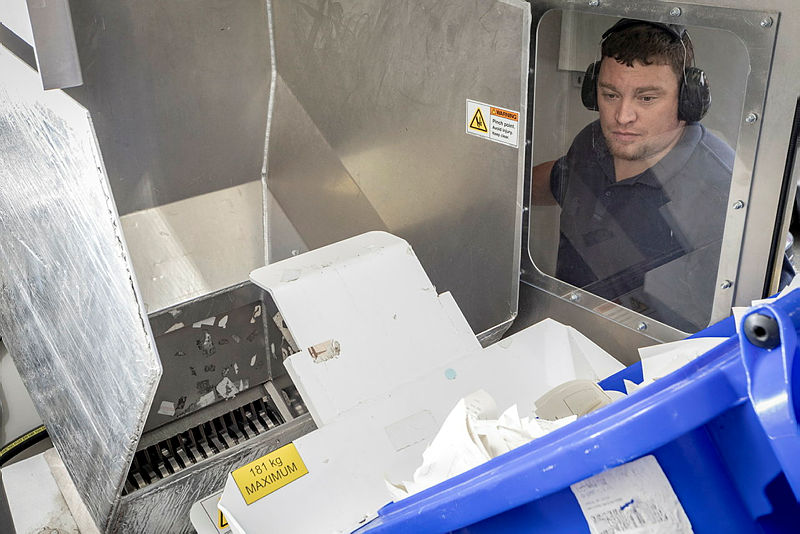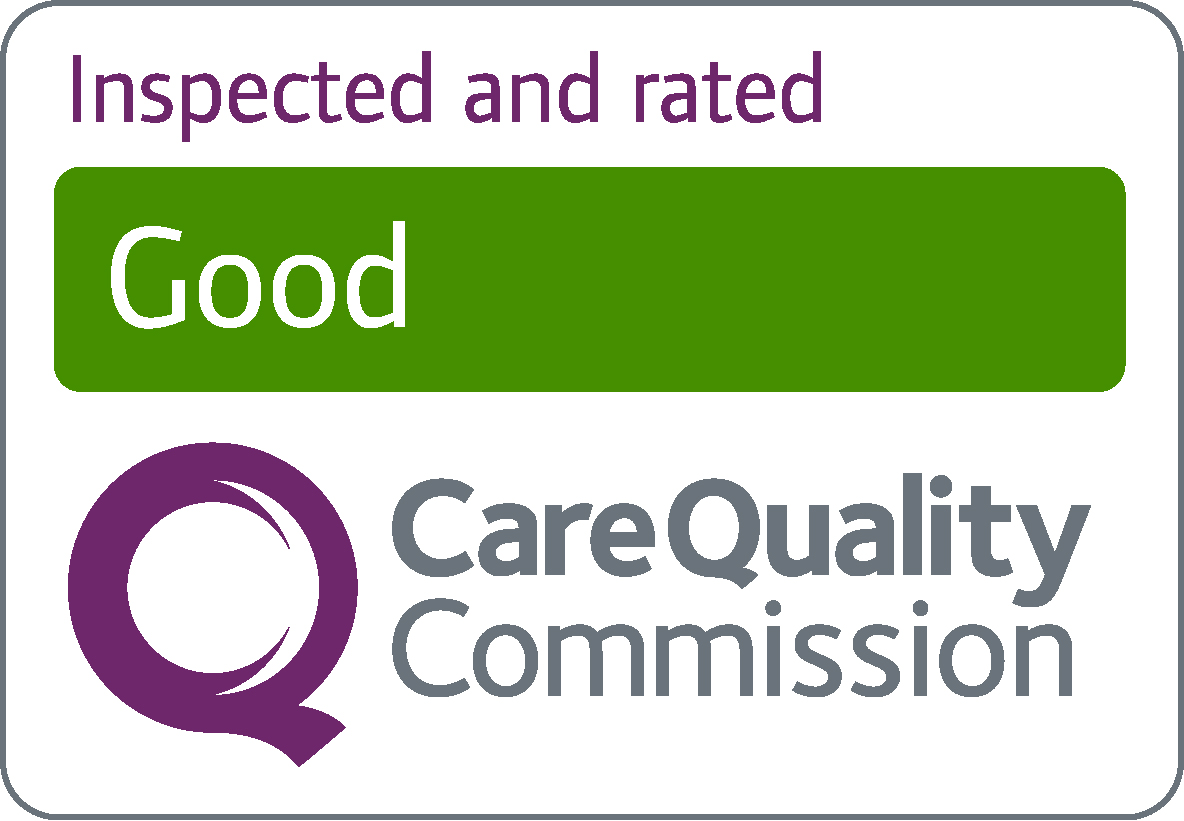Shredder lorry saves thousands of pounds
Date of release: 17 July 2024
A lorry that shreds paper at three hospitals is saving the NHS more than £30,000 a year thanks to the efforts of a pioneering recycling champion.

Waste and Recycling Management Team
Richard Penberthy, Waste and Recycling Management Team Manager at The Royal Wolverhampton NHS Trust (RWT), had an idea to save money by leasing a lorry to shred confidential paper instead of paying a third-party contractor. So a vehicle was leased at a cost of £250,000 over five years.
“We were paying a lot of money to destroy our confidential data and the contractor was earning money from it too through rebates from a paper recycle mill, therefore getting two bites of the cherry,” said Richard.
Leasing the 18-tonne high-security shredding vehicle and having an in-house service enables the Trust to recycle all office paper and small cardboard boxes, as well as the confidential data.
“We provide a free service to all RWT wards and departments, including West Park Hospital, Cannock Chase Hospital and RWT community site practices where we collect bins on a weekly basis,” added Richard.
From running a team of five part-time staff, he now manages 20 people. Originally a submariner in the Royal Navy, Richard was a binman, then became part of the City of Wolverhampton Council’s waste management team before introducing recycling to the city in 2003-04.
The benefits of having the shredding lorry are:- Annual savings of more than £30,000. As the Trust has now hired a shredding lorry, it can now collect, shred and sell its paper itself, avoiding having to pay a company for these services
- A free confidential data and office paper-shredding service for all wards and departments
- Reduced carbon emissions after swapping third-party clinical waste collections from Cannock Chase Hospital for in-house ones
- Collections within 24 hours of emailed request, instead of weekly by contractors
- Three staff have now become HGV drivers.
In 2023-24 the Trust recycled over 130 tonnes of confidential data and office paper and had a cost avoidance of over £30,000.

Ryan Smithyman leading the operations from the inside of the lorry
Confidential data and office paper is taken to the shredding vehicle in secured containers, where the contents are emptied into a hopper within the vehicle then it is shredded to the same size as confetti.
Once the vehicle is filled – it takes about two weeks to generate up to five-and-a-half tonnes – it is transported to a recycling company which re-shreds it and bales it before taking it to a paper mill and selling it. RWT receives a rebate from the sale of the paper.
“This helps with the Trust’s Green Plan, because it negates a vehicle travelling from Nottingham and back once a week,” added Richard. “Having our own vehicle means we only need to make the journey once a fortnight.
This saves 149 tonnes in CO2 emissions savings – the equivalent to driving around the world 15 times in an average petrol car.
“We also stopped using a third party to collect clinical waste from Cannock, which was coming from Wrexham and costing around £60,000 a year. And by collecting our own clinical waste there is a further CO2 emission saving.
“We now have three drivers licensed to carry hazardous waste who collect it and dispose of it in our own incinerator.”
RWT has also started a dry Domestic Recycling Service (DMR) which includes:- Aerosols
- Cardboard (flattened first)
- Drinks cans
- Clean foil packaging
- Food tins (rinsed)
- Glass bottles and jars
- Household plastic bottles
- Newspapers and magazines
- Paper (not paper towels)
- Plastic drinks bottles and packaging (margarine tubs, yoghurt pots, food trays)
New Cross is at 32 per cent for this. Other waste streams recycled include motor oil, cooking oil, wood, garden waste, building waste – including plasterboard – metal and electrical equipment, hard plastic, inhaler outer plastic casings, tyres, batteries and more.
“We also have zero landfill – none of our domestic waste goes to landfill,” said Richard. “It all goes to the local Energy From Waste plant which produces electricity for the grid.
“My aim is to become a recycling disposal Trust rather than a refuse disposal one. When we get to 51 per cent of recycling, we can call ourselves a recycling disposal Trust.”
ENDS
- For further information, please call Tim Nash on 07714 741097 or email tim.nash2@nhs.net

